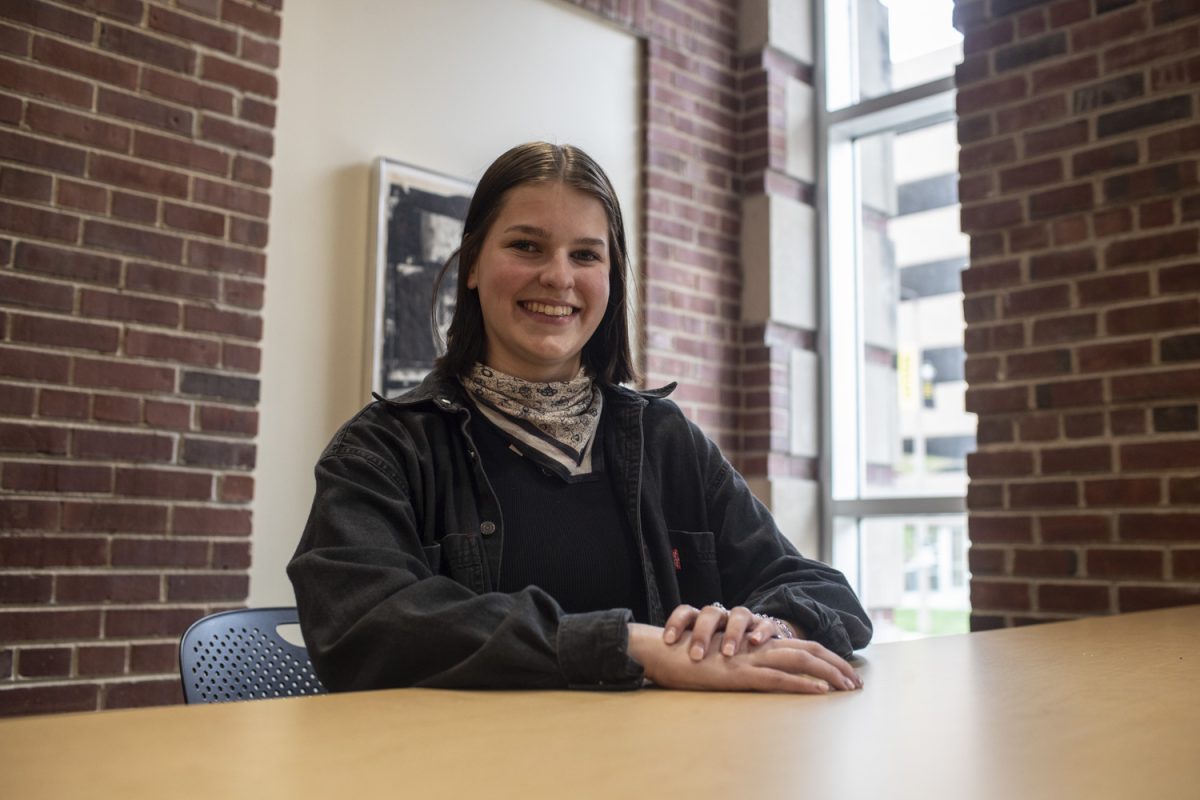A chef in a big white hat and coat creating magical dishes might just be a romantic notion we get from movies. Here in Iowa City, restaurant kitchens are not so strictly structured, and chefs like to call themselves craftsmen.
July is the National Culinary Arts Month, created to celebrate chefs and their contributions to culinary trends and dining. Although many Iowa City chefs said they have not heard of the month, they said they approach their work with passion, using sophisticated knowledge and techniques in cooking for consumers.
“Most basically, food means the relationships I have with other people,” said Anthony Walsh, the head chef at One-Twenty-Six, 126 E. Washington St., and its sister restaurants Hearth and Moonrakers.
Walsh graduated from the University of Iowa with a degree in African American studies in 1996. Instead of attending a culinary school, he learned culinary arts on his own and from his various cooking jobs throughout college.
“Most liberal-arts degrees, I think, prepare you for a career in the hospitality industry,” Walsh said and laughed.
The love for food sparked his interest in cooking. For him, cooking means a chance to express himself and to show off his creativity. More importantly, he said, it is a fundamental experience for him to elevate the craft of cooking and to make it enjoyable.
“If you are really into it, and you’re doing it responsibly, you can support local growers, then you’re getting really good food, and you feel connected to the real world and people around you in a way I don’t think any other profession can offer,” he said.
Walsh said he likes to make foods that are real and basic. As a chef, he tries to make everything from scratch and to keep processed food at minimal.
As the father of two boys, he said, it’s important for people to know what they’re eating — what’s “behind the curtain.”
Kurt Michael Friese, the owner and top chef of Devotay, 117 N. Linn St., said he likes cooking simply because he likes helping people and making them happy.
“[America’s] been tricked into believing that cooking is a chore,” said Friese, a graduate and former chef-instructor at the New England Culinary Institute. “When it’s actually a sacred act and the single most substantive way to demonstrate our love to our family and friends.”
Friese said he is dedicated to serving “good, clean, and fair” sustainable food to the Iowa City community.
“By good, I mean that it’s good tasting and good for you,” he explained. “By clean, I mean that it doesn’t hurt the Earth and there’s nothing in the food that isn’t food. By fair, we mean that the people who produced the food are justly compensated for the work they put into it.”
Then what is the culinary trend of 2013?
Though not a trend-watcher, Freise said, he thinks there will be a continued interest in fresh, locally grown food and a continued decline in meat consumption.
“By no means a vegetarian wave, but things such as Meatless Monday, smaller portions of meat, that kind of thing,” said Friese, who is also a freelance food writer.
When Isaac Onofre was a child, he dreamed of becoming a pilot, but he ended up being a chef, creating dishes with “passion, dedication, and love.”
“After I started cooking for a while, I just fell in love with it,” he said. “I think in a way I’m still a pilot, just in a different way.”
Starting out in California, Onofre has been working in the restaurant industry for 22 years. He is now the corporate chef for Mondo’s, 112 E. College St., and Givanni’s, 109 E. College St.
To Onofre, cooking is not a job, it’s a lifelong career.
“Even though I never went to college, I haven’t had a degree, it’s my life,” the native of Mexico said. “It’s like an inside force. It keeps me going every day that I go to work. It’s something that I’ll keep doing the rest of my life.”
Onofre said that the cooking industry changes quickly, and he has worked for years to adapt to the continual changes.
“I call it the evolution of food nowadays,” he said. “There’s something new coming up every day up there. I think you have to adjust yourself to the new era.”






